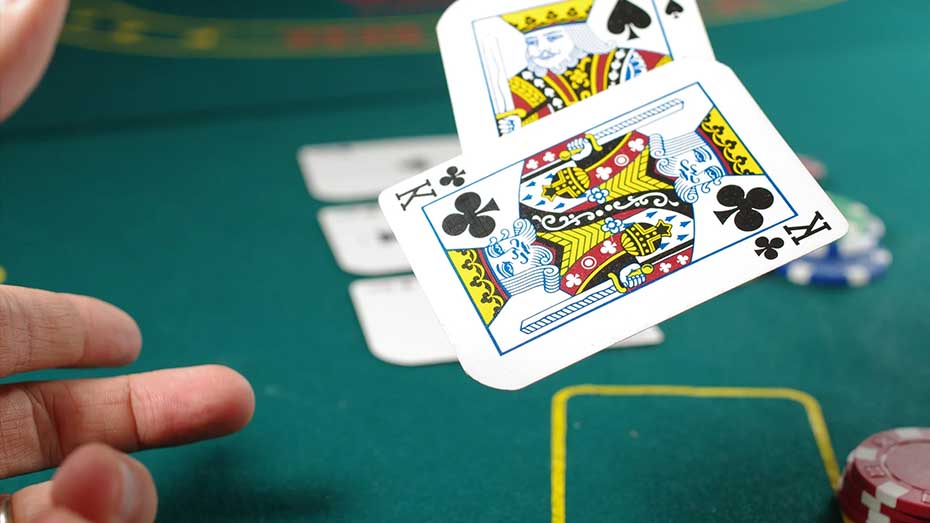The Best Poker Variations at Fun88

Discover a world of excitement and strategy with our comprehensive guide to poker variations. From classic Texas Hold’em to lesser-known gems like Omaha and Stud, explore the diverse range of poker games, rules, and strategies. Whether you’re a seasoned pro or a curious beginner, uncover the secrets of each variant and master the art of bluffing, calculating odds, and outsmarting your opponents in online poker.
Get ready to shuffle up and deal your way to victory!
Reasons For Existing Poker Variations

The game of poker, having originated in the West, grew to be one of the best-loved land-based and online casino games by many punters. With different variations stemming from their place of origin, such as Texas Hold’em from the United States and Omaha from Europe, poker has stirred many gamblers’ interest.
Over time the development of poker variations depended on the following:
Poker Variations

Poker variations encompass a captivating realm of diverse gameplay, rules, and strategies that have emerged over time. As mentioned, these variations offer different levels of skill, luck, and strategic depth, catering to the preferences and playing styles of a wide range of players. Whether you’re seeking intense action, thoughtful decision-making, or a mix of both, exploring the rich tapestry of poker variations opens up a world of excitement and challenge.
Texas Hold’em
Texas Hold’em is among the most popular and widely played poker variations. It originated in the early 20th century in Robstown, Texas. It gained popularity in the 1960s when it was introduced to Las Vegas. Known as a community card game, it involves skill and strategy and is enjoyed by many gamblers in land-based and online casinos.
This is how it is played:
- Two Hole Cards: Each player is dealt two private cards face-down, known as hole cards. These cards are only visible to the individual player.
- The “Flop,” “Turn,” and “River”: The community cards in Texas Hold’em are dealt in stages. After the first betting rounding, three cards are placed face-up on the table, known as the flop. Then, a fourth card is revealed, called the turn. Finally, the fifth and final card, the river, is shown.
In this game, bluffing is a crucial element in Texas Hold’em. Players can bet or raise with weaker hands to deceive their opponents and make them fold better hands.
Omaha
Omaha is known for its action-packed nature. Four-hole cards often lead to stronger hands and more players seeing the flop. This poker variation has gained significant popularity over the years, both in live and online poker. Many major poker tournaments, such as the World Series of Poker, offer Omaha events, attracting a dedicated player base.
But unlike Texas Hold’em, where players are dealt two hole cards, Omaha poker players receive four private cards face-down. However, they must use exactly two hole cards and three community cards to create their final hand.
Caribbean Stud
Caribbean Stud Poker was developed in the early 1980s by poker player David Sklansky. It was initially introduced as a casino table game, combining elements of traditional poker with the format of blackjack. This poker variation is primarily played as a casino house game, meaning players compete against the dealer rather than against each other.
Caribbean Stud Poker does not involve bluffing or strategic decision-making against other players unlike other poker variations. It focuses solely on the player’s hand versus the dealer’s. In this poker variation, players start by placing an ante bet. After receiving their five cards and assessing their hand, they can choose to fold and forfeit their ante bet or make a call bet twice the size of the ante.
As for the dealer to play their hand, they must have at least an Ace-King high hand. If the dealer does not qualify, players receive even money on their ante bet while their call bet pushes. If the dealer qualifies and the player’s hand is higher ranked, the player receives even money on both their ante and call bets. If the dealer’s hand is higher ranked or ties to the player’s hand, the player loses both bets.
Triple Card Poker
As an entertaining casino table game that offers players multiple betting options, Triple Card Poker allows players to make multiple bets and compete against the dealer’s hand. Here are interesting details on how this poker variation is played. Triple Card Poker is known for its simplicity and fast-paced gameplay. The game offers quick rounds and straightforward betting options, appealing to players looking for an easy-to-learn casino game.
Pai Gow Poker
Pai Gow Poker is a popular casino table game that combines elements of traditional Chinese game Pai Gow and American poker. It was created by Sam Torosian, the owner of the Bell Card Club in California, in the 1980s. In this game, players receive seven cards and must create two separate poker hands: a five-card hand (high hand) and a two-card hand (low hand). The goal is to create two stronger hands than the dealer’s hands.
The five-card hand follows traditional poker hand rankings, while the two-card hand can only have pairs or high cards. The five-card hand must be higher in rank than the two-card hand. If players are unsure how to set their hands, most casinos offer a “House Way” option. The dealer uses this method to set their own hand, and players can choose to set their hands the same way.
In Pai Gow Poker, if the player’s high hand and low hand beat the dealer’s corresponding hands, the player wins. If one hand wins and the other loses, it results in a push, and no money is exchanged. If both hands lose, the player loses the bet.
In some casinos, players have the option to be the banker. Being the banker allows players to compare their hands to other players instead of the dealer. However, being a banker also carries additional responsibilities and risks.
Teen Patti
Teen Patti, also known as Indian Poker or Flush, originated as a traditional card game in India. It has been played for centuries and remains popular in India and other South Asian countries. Aside from being a popular card game, it also holds a cultural significance among South Asian communities. It is often played during festivals, weddings, and other social gatherings, bringing people together and fostering a sense of camaraderie.
With the rise of online gaming platforms, Teen Patti has gained popularity in the digital realm. Online versions of the game allow players worldwide to compete against each other and enjoy the excitement of Teen Patti remotely.
Here’s are some distinct features in playing the game:
FAQs
Conclusion
In conclusion, poker variations offer a diverse and exciting array of gameplay options for poker enthusiasts, as long as players register on a reputable platform. From the widely played Texas Hold’em to lesser-known variants, each variation brings its own set of rules, strategies, and nuances to the table. Whether you’re a beginner looking for an easy-to-learn game or an experienced player seeking new challenges, there is a poker variation suited to your preferences.


















